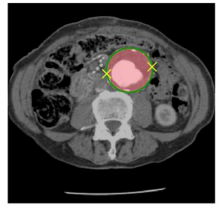Three Palm Software announced the release of the 1.8.8 version of its breast imaging workstation, WorkstationOne. This release builds on the existing comprehensive support for mammography, with enhancements in several areas. An emphasis of this release is expanded custom display mechanisms for new mammography computer-aided detection (CAD) systems, decision support and breast density reports. This includes customized report display for approximately 20 different vendors (not all of which are available for clinical use yet).
© Copyright Wainscot Media. All Rights Reserved.
Subscribe Now

